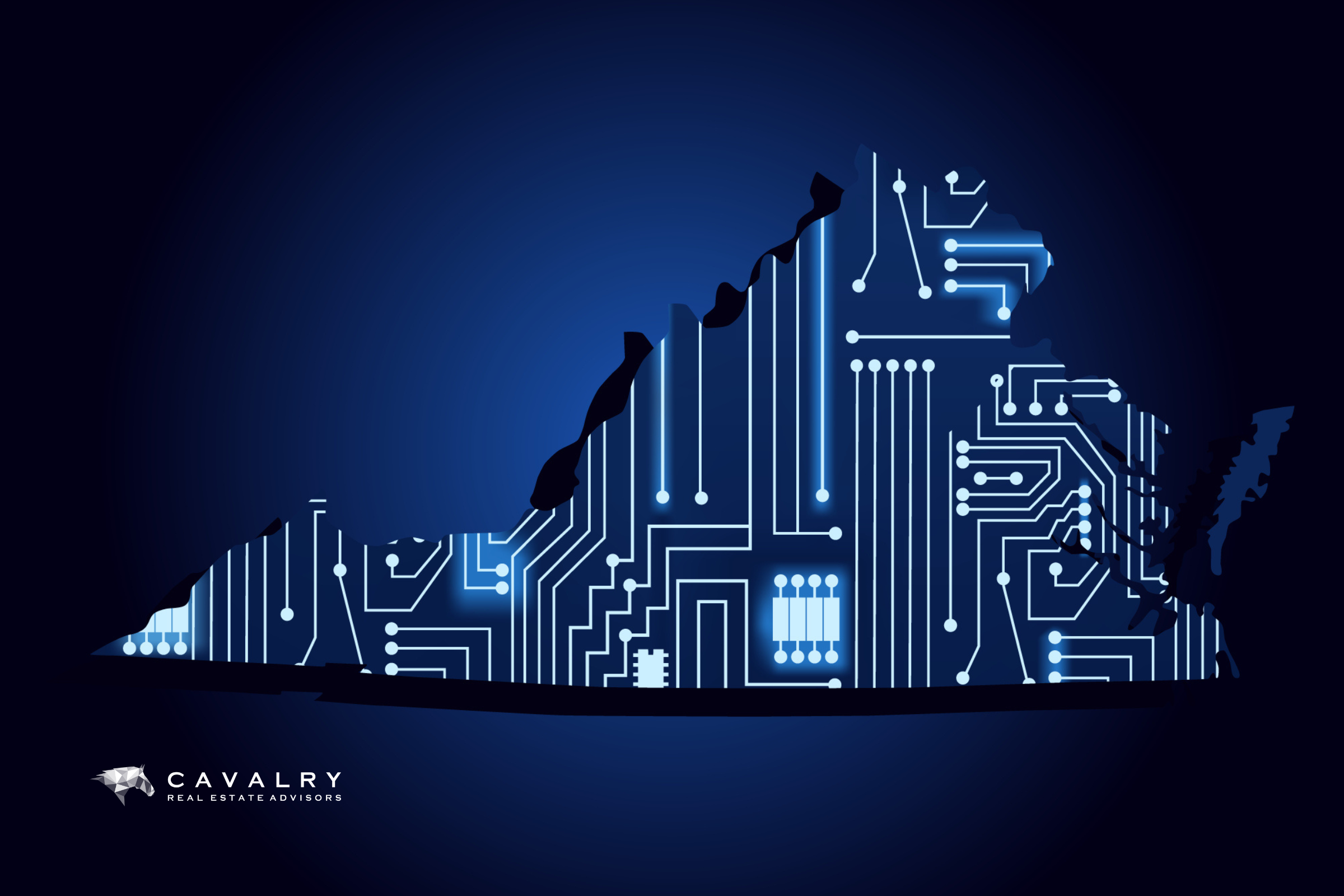As Cavalry’s resident data center nerd, I’m back for another round of analysis on this oddball property type. Prior to joining Cavalry and Taxonics, I valued many data centers during my career as an appraiser. During this time, I became somewhat of an expert in them. For those of us in Virginia, data centers are becoming more and more prevalent. In fact, more than 75% of the world’s Internet traffic flows through data centers in Northern Virginia (our backyard).
Data center tax rules have always been a sticky subject, and with HB791 and SB513, Virginia has reset the equation. To illustrate, here is an anecdote from my time as an appraiser. A fellow appraiser, new to data centers, once jokingly asked me if I had any advice for him when completing his first inspection. Because I sometimes lack social awareness, I replied in a serious tone that he should take many photos in a systematic manner of the non-sensitive equipment rooms. This was good advice that he probably ignored. Because, like many aspects of analyzing a data center, the details about the data center equipment in place are complex, important, and often opaque.
It is in this context that HB791 and SB513 are defensible pieces of legislation. The identical bills pertain to how data center fixtures like computer room air conditioners or uninterruptible power supplies are assessed when they are included in the real estate. Specifically, that the cost approach should be used instead of the income approach. The overall effect is that data center assessments are reduced, leading to lower real estate tax expenses for data center owners. Thus, the bills address a practical limitation of assessing these oddball properties using the income approach.
Leaving aside the issue of assigning income contribution to various parts of the property (this is a nightmare, trust me), the problem with using the income approach is in the availability of information, particularly market rents.
- For starters, many data centers are “owner-occupied” or have non-arm’s length lease agreements that do not reflect market terms. Quite a few of the large cloud provider facilities fall within this category.
- Secondly, for properties that are leased to single or colocation tenants, the terms of the agreements are highly confidential. Sharing them with a non-mandatory party like a local government could constitute breach of contract.
- Finally, the agreements often include idiosyncratic performance requirements and additional services. Non-experts can find these difficult to interpret and compare between properties.
These three factors taken together severely limit the amount of market rent data that valuers have available to them. Limited data usually means you cannot be as confident in your conclusions.
In contrast, there is much more transparency about what data center equipment costs. In theory, the assessor should be able to obtain updated equipment listings (though this has its challenges, as I mentioned). Because of these factors, HB791 and SB513 are reasonable bills that address a key information challenge that valuers of all kinds face when analyzing data centers. Now, it’s up to appraisers and owners alike to do their due diligence and ensure they’re not paying more than their fair share in taxes under these new bills. Data center nerd, out.
